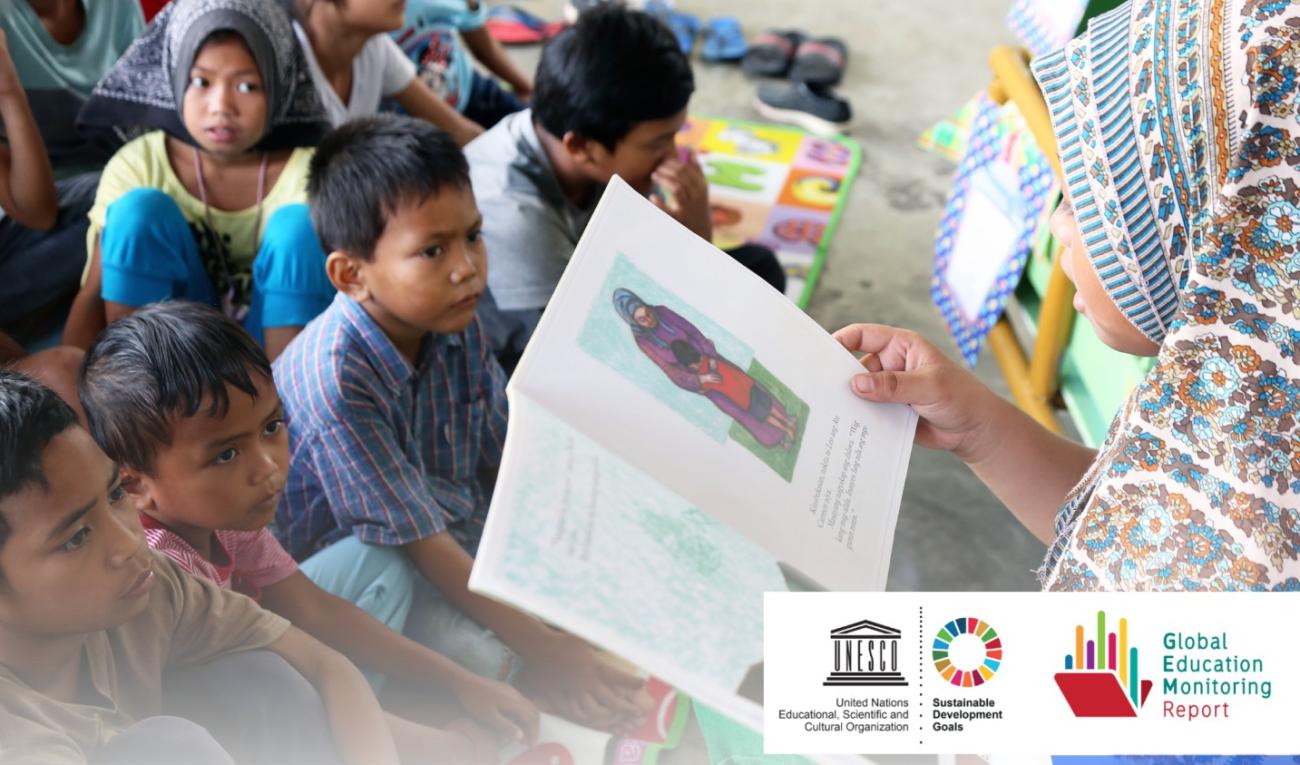UN Philippines renews call for inclusive education at launch of new UNESCO report

"We commit to inclusive education because it enables every child, youth and adult to learn and fulfil their potential." -- Gustavo Gonzalez
MANILA, 25 November 2020 – United Nations (UN) Resident Coordinator Gustavo Gonzalez cited the major progress achieved by the Philippine Government towards inclusive education in recent decades, but warned that the COVID-19 pandemic threatens reversing these hard-won gains. Gonzalez issued this statement at the launch today of the 2020 Global Education Monitoring (GEM) Report.
"In the Philippines, and owing in large part to financial difficulties brought on by the COVID-19 pandemic, at least 2.3 million children have not enrolled for the current school year," said Gonzalez. "The rise in the school dropout rate is less a factor of the cost of tuition than by poor families’ lack of gadgets and access to internet connectivity that are required for online learning during the pandemic. Only 17.7% of Philippine households have their own internet access at home according to the 2019 National ICT Household Survey."
With its theme, “Inclusion and education: All means All,” the launch aimed to increase awareness of the Report’s messages and recommendations on inclusion in education with the wider education community, with those working on humanitarian responses, and with government officials and policy makers. The event was organized by the United Nations Educational, Scientific and Cultural Organization (UNESCO) and the Department of Education (DepEd), and was participated in by government officials, international aid agencies, education and humanitarian experts, policy makers, teachers and learners.
The 2020 GEM Report provides an in-depth analysis of key factors excluding learners in education systems worldwide, such as background, identity and ability (i.e. gender, age, location, poverty, disability, ethnicity, indigeneity, language, religion, migration or displacement status, sexual orientation or gender identity expression, incarceration, beliefs and attitudes).
"We commit to inclusive education because it enables every child, youth and adult to learn and fulfill their potential." -- Gustavo Gonzalez
One of the numerous examples highlighted in the report is the gender-responsive basic education policy created by DepEd, where it has called for an end to discrimination based on gender, sexual orientation and gender identity by defining ways for education administrators and school leaders, including improving curricula and teacher education programmes with the content on bullying, discrimination, gender, sexuality and human rights.
The Report also notes the heightening of exclusion during the COVID-19 pandemic, where it has shown that about 40% of low and lower-middle income countries have not supported disadvantaged learners during temporary school shutdown.
Gonzalez noted that "the UN is planning to strengthen its focus on the education and training system as part of its support to the COVID-19 recovery in the Philippines. In our new roadmap for addressing the socioeconomic impact of COVID-19 in the Philippines, we aim to contribute to providing quality education in the ‘new normal’ context. We will do this by supporting the government and partners in promoting and implementing new educational norms such as early childhood learning, non-formal and vocational and technical education, life skills training, and maximizing the use of affordable, digital platforms and other distance education modalities for learning delivery."
"We commit to inclusive education because it enables every child, youth and adult to learn and fulfill their potential," Gonzalez added.
The 2020 Global Education Monitoring (GEM) Report urges countries to focus on those left behind as schools reopen so as to foster more resilient and equal societies.


